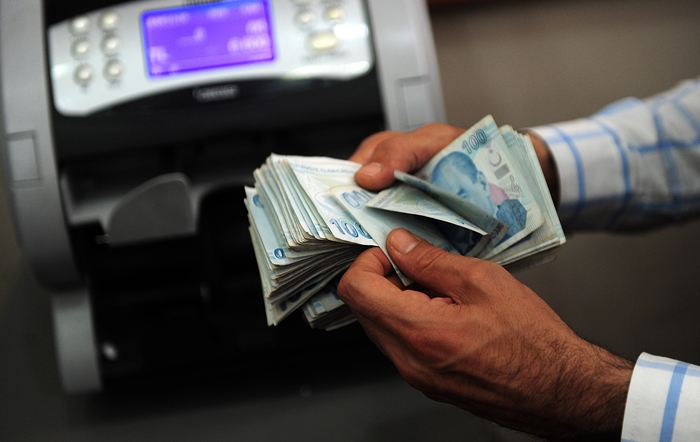The bonds of three Turkish lenders are trading at distressed levels, which shows the deteriorating opinion of investors on the ability of the companies to repay their obligations even though the banks remain profitable and highly capitalized, according to Bloomberg.
Early last month no corporate bonds in Turkey were at these levels. Now, the average risk premium demanded by investors to hold dollar-denominated notes of Turkish businesses is higher than Bahrain, Ukraine and Nigeria.
The lira’s decline is invoking memories of the 2018 currency crisis, when billions of dollars of credit had to be restructured as borrowers struggled to repay foreign debt.
Turkish corporate bonds worth $2.2 billion are trading in distressed levels, with yields on debt sold by Türkiye İş Bankası A.Ş., the nation’s third-largest lender, Türkiye Garanti Bankası A.Ş. and Akbank T.A.Ş. now more than 1,000 basis points above US Treasuries. Add the securities of company debt above an 800 basis-point spread, and that figure surges to $5.3 billion.
That’s even as Turkey’s banks, which are accustomed to market turbulence and policy flip-flops, had average capital adequacy ratios of 20 percent at the end of June, above the regulator’s 12 percent requirement. All three lenders reported second-quarter profit that beat estimates.
Rapid lending growth and payment holidays to cushion customers from the economic fallout of the coronavirus helped to keep non-performing loans steady at 4.4 percent of total credit at the end of June, according to data compiled by the banking regulator.
The lira has weakened 18 percent this year to 7.2246 per dollar as of Tuesday’s close. Goldman Sachs Group Inc. expects the currency to slide to between 7.75 and 8 in the next three to six months.
